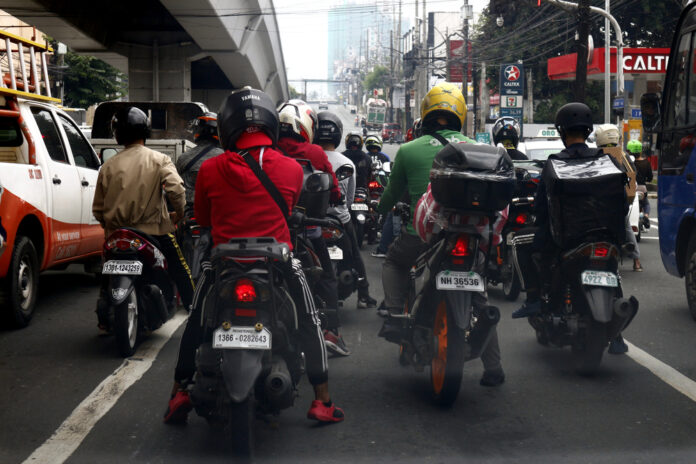The Land Transportation Franchising and Regulatory Board (LTFRB) on Friday rejected notions of putting a cap on the number of motorcycle taxis under a proposed legislation now being crafted at the House of Representative.
Land Transportation Office Assistant Secretary Vigor Mendoza II said the proposed law should not specify a specific number of motorcycle taxis but should instead be based on data and evidence.
“To put a cap at this early stage would be premature considering the many factors to consider in determining demand. Population is one. The need of a certain area is another. All this is a matter of evidence that has to be proven,” he said.
Transportation committee chairperson and Antipolo 2nd District Rep. Romeo Acop said it would be unwise to set caps in the proposed motorcycle taxi legislation as this is best determined by competition among the players.
“Doing business is competition. I do not see the wisdom of limiting the number vehicles,” said Acop in a mix of Filipino. He noted, for instance, the Department of the Interior and Local Government permits the local government units determine the number of tricycles in their respective jurisdictions.
According to 1-RIDER Party-list Ramon Rodrigo Gutierrez, the Technical Working Group (TWG) assigned to finalize the provisions of the motorcycle taxi bill were unanimous in saying there should not be limit in the proposed bill.
Concerns were earlier raised regarding the number of motorcycle taxis that would be allowed to ply Philippine roads during the public hearing at the House of Representatives.
Ronald Gustilo who leads Digital Pinoys said his group supports putting a cap in the law to prevent an oversupply of motorcycle taxis.
But Gutierrez said that in the bill being crafted by the TWG, the LTFRB, in determining the number of franchises to be issued, need only to take into consideration the local public transport route plan.
“The LTFRB shall approve the routes and number of units that may be allowed. There is no question on whether or not there will be limits because there will be limits,” Gutierrez said.
The LPTRP is a plan detailing the route network, mode and required number of units per mode for delivering land transport service.







